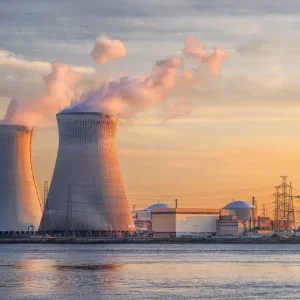
Brazil’s recently-elected president Jair Bolsonaro has ambitious plans for the Amazon rainforest but they don’t make for particularly encouraging reading for anyone who’d like to see it stand long into the future.
Providing more than 20% of the world’s oxygen and acting as a carbon sink, removing harmful carbon dioxide from the atmosphere, the Amazon is critical to each and every one of the world’s myriad ecosystems.
It is perhaps unsurprising, then, that Bolsonaro’s various decisions to strip back its protection, weaken independent groups dedicated to support it and strengthen lobbies determined to exploit it have sparked consternation from the rest of the world.
According to the 64-year-old and his administration, however, the sprawling rainforest, 60% of which lies within his country’s borders, belongs to Brazil and should not have its fate decided by foreign powers.
Bolsonaro’s rise to power was largely predicated on plans to ease environmental regulations and empower agricultural business, regardless of the cost to the Amazon – here we take a closer look at how he plans to fulfil his pledges.
Empowering mining and agribusiness lobbies
Just hours after he took office, Jair Bolsonaro began empowering mining agribusiness lobbies in Brazil by arming the country’s agriculture ministry, which they control, with the agency to demarcate indigenous reserves in the Amazon.
This originally lay under the jurisdiction of Funai, an indigenous agency which has now been moved from the justice ministry to a new ministry of women, family and human rights.
Bolsonaro explained his actions in a tweet: “More than 15% of national territory is demarcated as indigenous land and quilombos.
“Less than a million people live in these places, isolated from true Brazil, exploited and manipulated by NGOs. Together we will integrate these citizens.”
This did not quell the outrage expressed by indigenous leaders, who argue their reserves, which account for roughly 13% of Brazilian territory, are now under threat.
Dinaman Tuxá, the executive coordinator of the Articulation of Indigenous People of Brazil, said: ““There will be an increase in deforestation and violence against indigenous people.
“Indigenous people are defenders and protectors of the environment.”

Creating a “Cancún of Brazil”
Earlier this month, Brazil’s president announced plans to remove environmental protections from a swathe of forested coastline south of his country’s capital in a bid to create what he refereed to as a “Cancún of Brazil”.
Bolsonaro’s plans for the reserve, where he received a $2,500 (£1,930) fine for illegal fishing in 2012, have angered several former environment ministers who claim he is the “exterminator of the future”.
José Sarney Filho, who served as environmental minister for two former Brazilian presidents, said: “We are watching them deconstruct everything we’ve put together.
“We’re talking about biodiversity, life, forests … the Amazon has an incredibly important role in global warming. It’s the world’s air conditioner; it regulates rain for the entire continent.”
Izabella Teixeira, who represented Brazil at the 2015 Paris climate talks, added: “Being a climate-change denier is very serious because it’s a geopolitical issue.
“The signals the government is now sending against the international consensus is compromising our credibility – not to mention our image.”
Scrapping independent groups
According to documents seen by the Associated press, the Brazilian president is considering removing the National Council of the Environment, replacing it instead with a government council of political appointees.
The independent group, also known as Conama, has nearly 100 members and mainly comprises key figures from impartial environmental and business groups, and works to preserve the 60% of the Amazon that is in Brazil.
Bolsonaro’s replacement, proposed in a leaked policy roadmap, would feature five five presidential appointees in addition to the country’s environment minister Ricardo Salles.
It has been criticised by activists who warn dismantling Conama, which they claim would happen under the new body, would lead to further deforestation in the Amazon and throughout Brazil.






